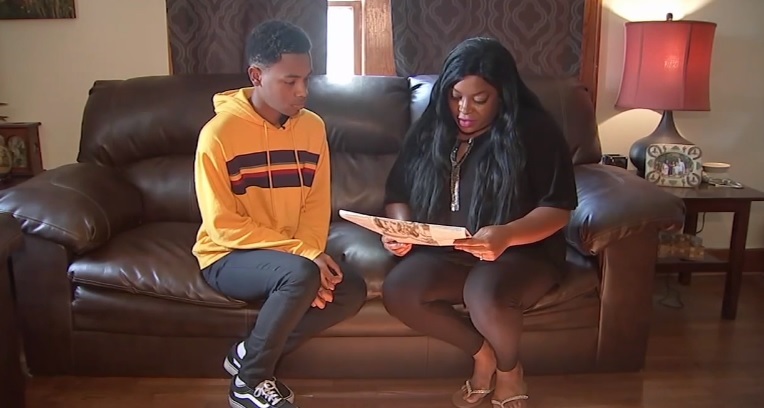Gay teen reveals heartbreaking homophobic bullying after being nominated for homecoming king

Justin Boone told ABC13 he suffered homophobic bullying
A gay teen in Texas has spoken out after a nomination for homecoming king led to homophobic bullying from classmates.
Justin Boone, who attends El Campo High School in Texas, told local news outlet ABC13 that he was initially “really excited” about his nomination for homecoming king.
His mother Erica Matula added: “We were so excited and my whole family, we were just thrilled.”
However, Boone was targeted by other students online, discovering messages in which students referred to him using homophobic slurs.
Teen refused to go to school because of homophobic bullying.
The bullying got so bad that on the day the result was announced, he refused to go to school.
He said: “Just the homophobic comments, I just didn’t feel like hearing it… in case I did win, I heard some people were going to boo or something, and I just didn’t feel like going through that.”

Justin Boone, who attends El Campo High School in Texas, has suffered homophobic bullying
His mother added: “We need to acknowledge that the school does have these bullying tendencies, and it’s not being acknowledged by anyone, and I feel like the school can take a step forward and try something new.”
The school board is yet to report to the allegations.
Classmates rally around Texas teen.
However, Boone says that some of his classmates have rallied around him after the incident.
“A lot of people came up to me and texted me and really sent me some good support.”
Texas is one of is six states that still continues to maintain a “No Promo Homo” law, which directs schools to teach that being gay is “not an acceptable lifestyle”.
The law requires sex education materials to include “emphasis, provided in a factual manner and from a public health perspective, that homosexuality is not a lifestyle acceptable to the general public.”
In July, governor of Texas Greg Abbott signed a law that barred ‘discrimination’ against businesses with anti-LGBT views.
The law barred state agencies from taking “any adverse action” that is based “wholly or partly on a person’s belief or action in accordance with the person’s sincerely held religious belief or moral conviction, including beliefs or convictions regarding marriage.”

